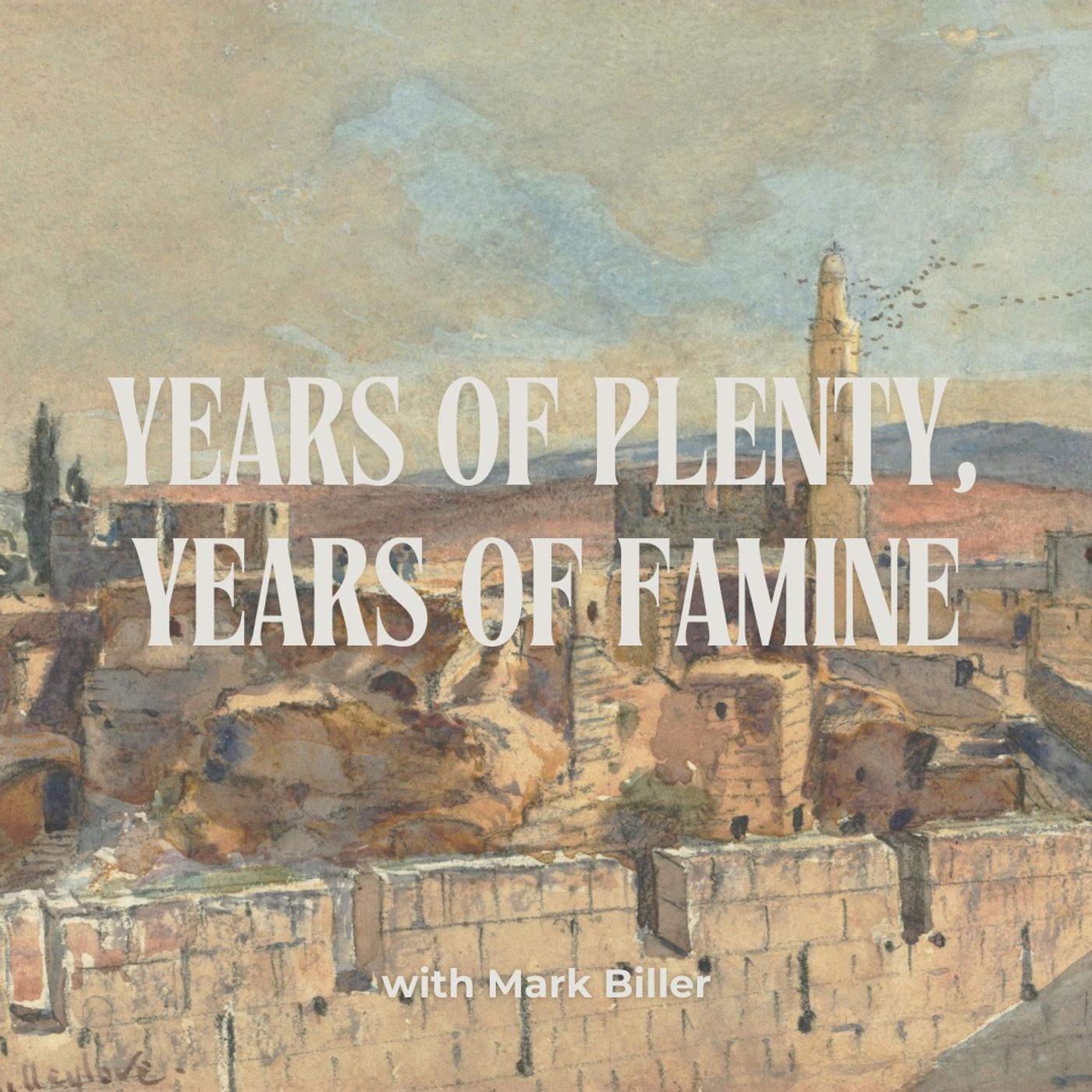Podcast Episode Details
Back to Podcast Episodes
Years of Plenty, Years of Famine with Mark Biller
Episode 746
“And he gathered up all the food of these seven years which occurred in the land of Egypt and put the food in the cities. He put in every city the food from the fields around it.” - Genesis 41:48
Joseph’s story isn’t just dramatic—it’s a powerful example of godly wisdom in uncertain times. His preparation during years of abundance helped an entire nation weather a famine. Today, Mark Biller joins us to explore what Joseph’s legacy teaches us about planning ahead.
Mark Biller is Executive Editor and Senior Portfolio Manager at Sound Mind Investing, an underwriter of Faith & Finance.
Learning from Joseph’s Example
Joseph’s story in the book of Genesis is one of the most dramatic and inspiring accounts in all of Scripture. From his rise and fall—from favored son to slave, from prisoner to ruler of Egypt—Joseph’s journey demonstrates God’s providence at every turn. His famous words to his brothers in Genesis 50:20 capture the theme: “You intended to harm me, but God intended it for good.”
But Joseph’s story is also a powerful lesson in financial stewardship. His foresight during years of abundance prepared Egypt—and surrounding nations—to survive years of famine. This biblical principle remains as relevant today as it was thousands of years ago.
In Genesis 41, Joseph interprets Pharaoh’s dreams, warning that seven years of abundance will be followed by seven years of famine. Pharaoh puts Joseph in charge of preparations, and Joseph sets aside 20% of the harvest during the good years. This disciplined stewardship meant survival when crisis hit.
Back in 2006, I wrote an editorial drawing on this lesson, warning that the “years of plenty” could give way to economic trouble. Just two years later, the 2008–2009 Global Financial Crisis proved the point. Many of the underlying issues from that period—such as excessive debt and systemic risk—remain unresolved to this day.
The Challenges We Face Now
While I don’t have the same sense of foreboding I felt in 2006, there are signs of stress in the global financial system:
- Runaway Debt – U.S. debt has risen from $10 trillion in 2008 to over $36 trillion today.
- Bigger Banks – Post-crisis reforms led to further consolidation, making the largest banks even larger.
- Central Bank Intervention – Years of near-zero interest rates and quantitative easing have encouraged dependence on stimulus.
- Political Division – Our political climate makes tackling systemic issues even more challenging.
Preparing Personally for the Next Storm
We can’t control national or global problems, but we can prepare at a personal level. If you are in a “year of plenty,” now is the time to:
- Pay down debt and reduce obligations.
- Build an emergency fund to weather personal or economic downturns.
- Diversify investments, including assets that hold value in inflationary times—such as gold, real estate, commodities, or even small allocations to Bitcoin.
- Live below your means so you can give generously when needs arise.
Financial Preparedness as Spiritual Opportunity
Preparedness isn’t just about protecting yourself—it’s about positioning yourself to help others. Crises, whether national or personal, can open hearts to the gospel. If our finances are in order, we can respond like Joseph—meeting physical needs and sharing the spiritual hope found in Christ.
If you’re in a season of famine right now, don’t lose heart. Trust G
Published on 4 months, 1 week ago